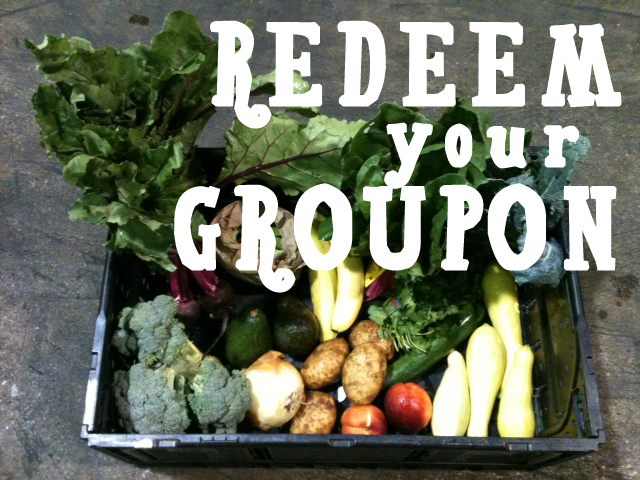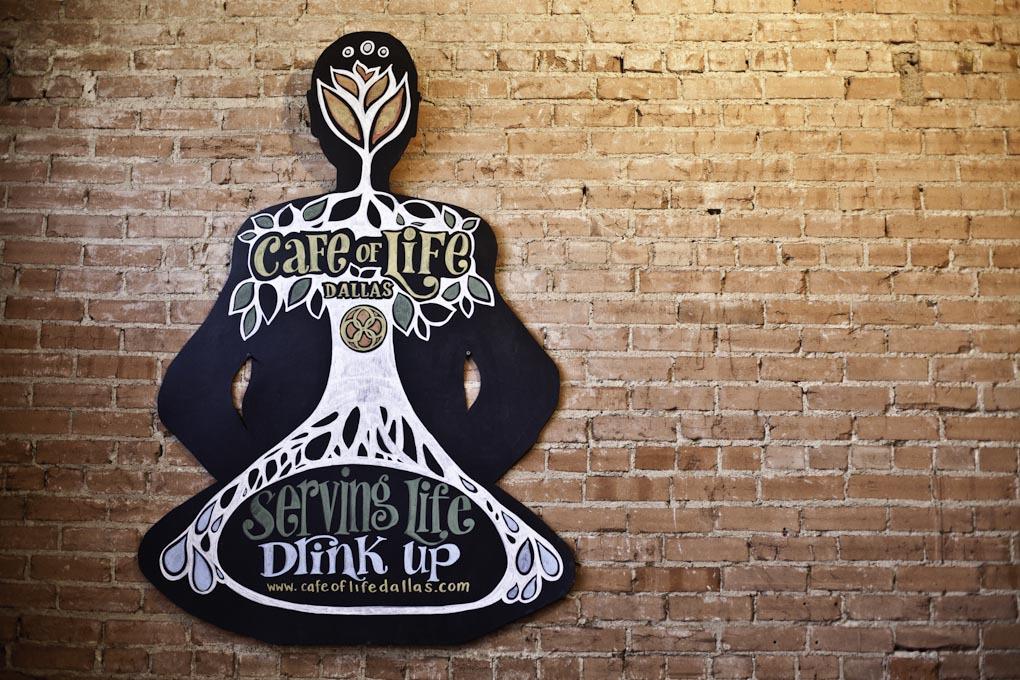Genny and Cameron Visit Morrison Organic Farm – Where Your Food Comes From
Our biggest goal and challenge at Urban Acres is connecting you with the farmers who grow your food. So, we sent two of our Urban Acres members – Genny Rowley and Cameron Day – to Morrison Organic Farm in Cleburne, TX to help with a summer harvest. Some of the food for our co-op style produce shares comes from the Morrison’s farm. We’re so thankful for Jacky and Cindy Morrison’s hard work and passion as they share their organic, locally grown food with our community. And thank you, Genny and Cameron, for getting your hands dirty!
First, a little background from Genny…
Cameron and I had a conversation with Urban Acres a few months ago in which we expressed our desire for local, fresh food that didn’t cost a whole lot of oil to get here. But we also have the desire for variety and at a low cost – we want all this stuff, and we want it cheap! And what we found is that those 3 things together are not sustainable. What we didn’t think about before was the complexity of making produce that’s both local AND organic available – there is not yet enough local, organic produce to fill our shares year round. And that’s what Urban Acres helped us understand. What I saw on our visit to the Morrison Farm is that Urban Acres meets the needs of a small corner of the population: folks who care about good, organic local food – and that population is literally keeping these small farmers in business, particularly in a year like this, where heat and drought threaten their ability to make a living. – Genny Rowley
Here’s a recap of the farm visit in Genny’s words…
Our first sight of Morrison Organic Farm was of Jacky and Cindy doing some fix-it work on a goat. We pulled into the drive behind the small brick house at the front of their 50-acre farm to see Jacky sitting on an overturned bucket, holding a somewhat wary goat steady while Cindy put something on a wound. “A coyote got her about six weeks ago,” Cindy explained. “Even when they’re in the pen that’ll happen sometimes.”
They stood up to greet us, their free-roaming hens clucking around our feet. Jacky’s a tall, quiet man with a quick smile and firm handshake, and Cindy’s tanned, friendly face and easy way of telling stories ensured us this would be a morning to love – a shift in pace for us city-dwellers. Cameron and I are urbanites living 5 minutes from downtown Dallas, so slipping in to the rhythms of farm life for a morning felt like a welcome connection to something that’s really old, really simple, and really important: the food we eat comes from real places and real people. That’s something that’s easy to forget, living in a built-up environment where we walk into organized stores that have pre-selected and sorted our food for us (Who knew there are such things as purple carrots? The stores I frequent only sell the orange ones!). The palette of the possible is pretty small and very uniform in size, shape and color.
But back to our morning on the farm: We started off picking cherry tomatoes and talking about the drought. “It’s all just crumbs now,” Cindy said. “We’d like to plant some more things, peas maybe, and more sweet potatoes, but we need a good soaking rain first. The soil’s too dry.” I asked them what the difference was between this year and a normal year, as we walked up and down the rows of tomato plants, plucking off the little fruits. “Oh, we’re getting maybe a third of what we should be,” Jacky said, shaking his head. And almost in the same breath, he looked forward and said with an unshakeable faith in his voice, “But it’ll rain.” I got up the nerve to ask about the “for sale” sign I noticed as we were driving in, scared they would say they needed to shut down. “Actually, we’re looking to expand,” Cindy explained. “Land around here’s gotten so expensive, so we’d like to go further west and get some more space for planting.” “Sure would be hard to leave, though, with the soil so good and being here 30 years now,” Jacky admitted.
We finished pulling in the tomatoes – about 2 buckets worth, and I watched Cindy pour them into those little green baskets I’m familiar with as an avid vegetable consumer. “These’ll go to Urban Acres on Friday. There’s not enough for the shares, but they can sell them in the store.” Then Cindy, Cameron and I hopped onto the front of their backhoe, and Jacky drove us up the hill to their upper fields. We hopped off, and Jacky and Cindy started pulling up dying squash plants. “We never do this,” Cindy said, “Growing organic means plowing the stuff back into the soil. But with the drought so bad, our cows just don’t have anything to eat, poor things.” So up we pulled, tossing once-productive plants over the fence to the hungry longhorn ladies and their equally hungry babies before starting on the fields of yellow squash.
At this point it’s fair to mention 2 things: First, if you’re gonna pick a whole bunch of yellow squash, wear a long sleeved shirt. I don’t care if it’s hot. You will absolutely thank me later, I promise. And second, Jacky and Cindy do most of this stuff by themselves. They take good care of their 50-acre plot and get good stuff out of it, with smart planning and providence in their favor. They hire Leo to help when they need it – he has a love of growing things and an intuition for what those plants need. The point is, lots of this good stuff in our shares was hand-plucked by these good folks, who really care about what they send to your table and care about future generations being able to do that, too.
Back to the squash fields, where we talked about why Jacky and Cindy went organic, way before organic was the saavy, healthy thing to do. “We never used any pesticides or herbicides or anything. When we started out we did use commercial fertilizer, for a few years.” But 25 years ago, they decided to go organic and they never looked back. I asked them about it, and Jacky grinned: “It just tastes better. Have you ever tasted that bitter stuff on vegetable skins? That shouldn’t be there.” Turns out going organic is both easy and hard, has good parts and bad, just like most things in life. “There’s a lot to consider,” Cindy pointed out, “We’d like to buy some more land and expand, but you’ve got to make sure the soil and water check out, as well as know what’s going to blow in on the prevailing winds from your neighbors.” We pulled buckets of squash, and I learned my lesson about long sleeves: much to Cindy’s worry, my arms got covered in itchy red marks and squash pollen (Great natural defense systems on those plants. Good thing I brought my determination with me).
We moved along to the cucumber fields, and our talk turned funny and serious at the same time – Cindy laughing at me as I missed plenty of (well-camouflaged!) cucumbers huddled low to the ground, and we all talked about everything from farming subsidies (they want them all to go away), to healthy soil being the starting place for a healthy society (they talked a lot about how healthy, living soil is what brings good, healthy food, as opposed to large commercial farms that chemically treat the plants so they’ll grow in dead soil), to the amount of good vegetables they don’t send out because they’re not the “right shape or color” (turns out the picture we have in our heads about what a good cucumber should be means a lot of good ones aren’t marketable).
We finished up the picking by mid-morning, all of us sweaty but enjoying the time and the work. We helped unload while they set things up to wash, sort, and pack those zucchini, squash, and cucumbers so they’ll be ready for our tables. I could’ve stayed out there all day, listening to the goats and learning about their greenhouse and hopes for the future, and we did a good job ignoring the pull of our normal urban life and work as long as we possibly could.
They took a break to walk us out to our car. Cindy pressed a dozen eggs in my hands, and Cameron was already carrying the bag of vegetables they insisted we take with us. Their invitation for us to return (“after the rain, when it looks good again”) was as genuine as their handshakes. Jacky stopped for a second to ask us how old we are. “31 next month,” Cameron said as I simultaneously replied, “29.” Jacky and Cindy smiled at each other as he said, “We were 31 and 27 when we quit our jobs and started. I know a nice couple with some good soil looking to sell their place so they can expand,” he said with a sly grin.
We smiled and looked at each other, tucking that possibility securely in our hearts, for now.
Urban Acres’ diligence at ‘beating the bushes’ looking for local organic produce for their clients, and subsequently their discovery of us, has proven to be one of the best avenues we’ve seen in our 25 years of farming to move product directly from the farmer’s hands to the peoples’. It seems our passion for farming organically is matched by Urban Acres’ passion to see local organic produce on as many tables as possible – a great partnership! – Cindy Morrison of Morrison Organic Farm
Trackbacks
- Visiting Jacky and Cindy’s Organic Farm in Cleburne, Texas | Genny Rowley
- Shelled Peas – More “Texas” Than The State Fair « Urban Acres
- Over 70% Local Produce This Weekend « Urban Acres
- Juicy Texas Watermelon, Figs, and Okra – We Can’t Get Enough! « Urban Acres
- Heirloom Orangeglo Watermelon – Return Your Seeds for $2 Store Credit! « Urban Acres



























this is a fantastic article. well done Urban Acres! Thank you Morrison’s for all the hard work and bringing the best local organic produce to our dinner tables!
This is a wonderful article-it’s great to see farmers dedicated to promoting a healthy lifestyle. So glad y’all are surviving the drought!
We know so well how difficult this drought and heat have made it to produce food. Thank you for hanging in there and providing us with such amazingly delicious produce. Your squash and zucchini are so tasty & sweet, I can eat them raw by the plateful. Well done, Morrisons!!!